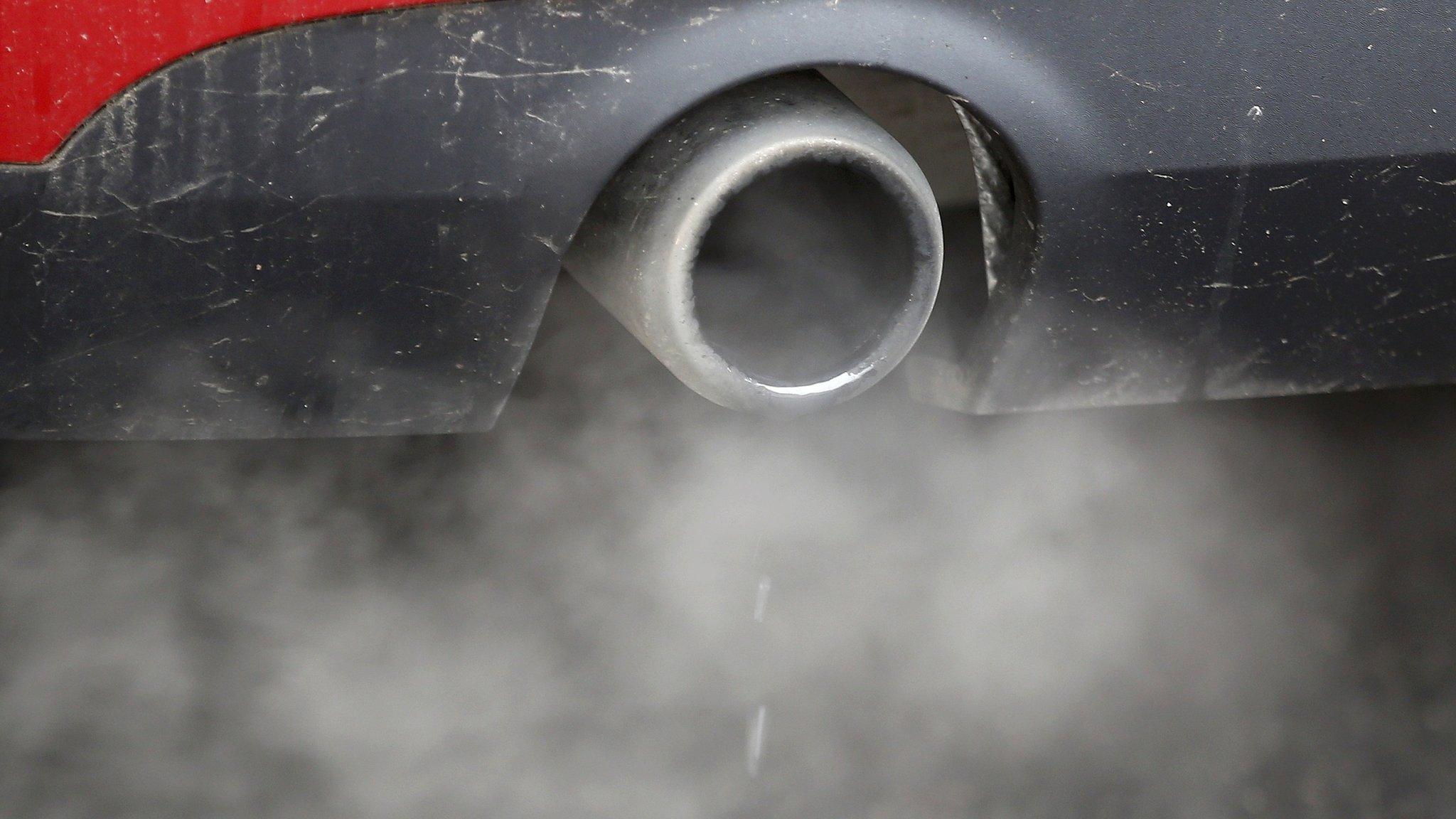Train strikes: What is the impact on taxi drivers?
- Published

The latest RMT union's 48-hour rail strike is part of a long-running dispute over pay and conditions
A rail strike by 40,000 RMT union members led to four in five trains being cancelled on Tuesday as many people returned to work after the Christmas break. Many taxi drivers rely on pick-ups from railway stations, so what has the impact been on their trade?

'I've only had two jobs - it's terrible'
Jason Read runs Norwich Taxis UK and has several drivers of Hackney carriages, or black cabs, on his books.
He had been at the Norwich station rank since 09:00 GMT on Tuesday, along with half a dozen other cabbies.
"It's 12:20 and I've only had two jobs, it's terrible. I've earnt £25, normally I'd be sitting on about £100 by now," he said.
"I've had four phone calls today - all cancellations, because there's no trains.
"We have our regular users - mainly wheelchair users, that's our bread and butter, we've got a few of them today, thank god.
"But as for working from a rank which we pay £1,200 a year to work from - terrible.
"It's not worth sitting in the station during the rail strike, I've learnt my lesson today."
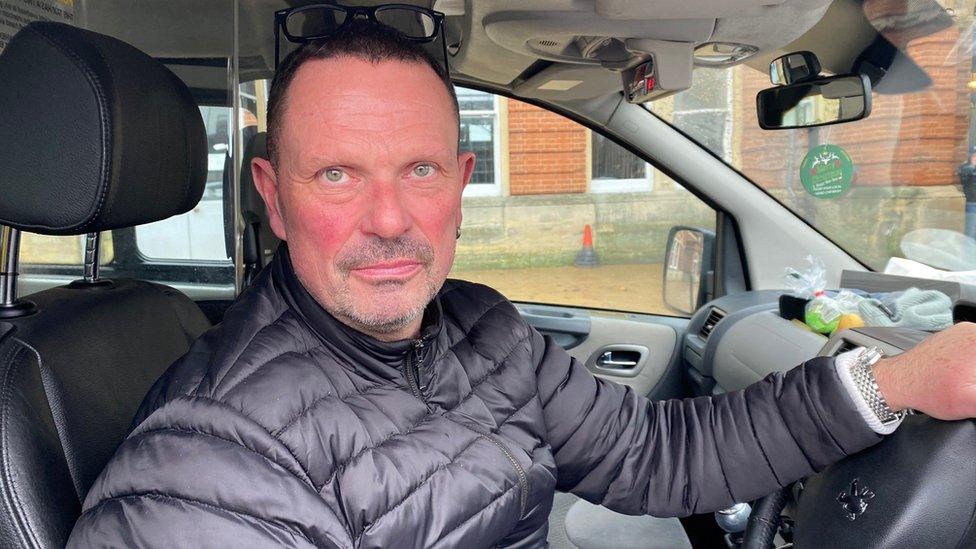
Hackney cab driver Jason Read said the strike had cost him money and he called on the government to try to resolve the dispute on the railways
He is calling on the government to help resolve the dispute quickly, so "things can get back to normal".
"The government needs to sit down and talk to people don't they? The same with the nurses," he says.
"They can't just bury their heads in the sand."

'A lot of sitting around'
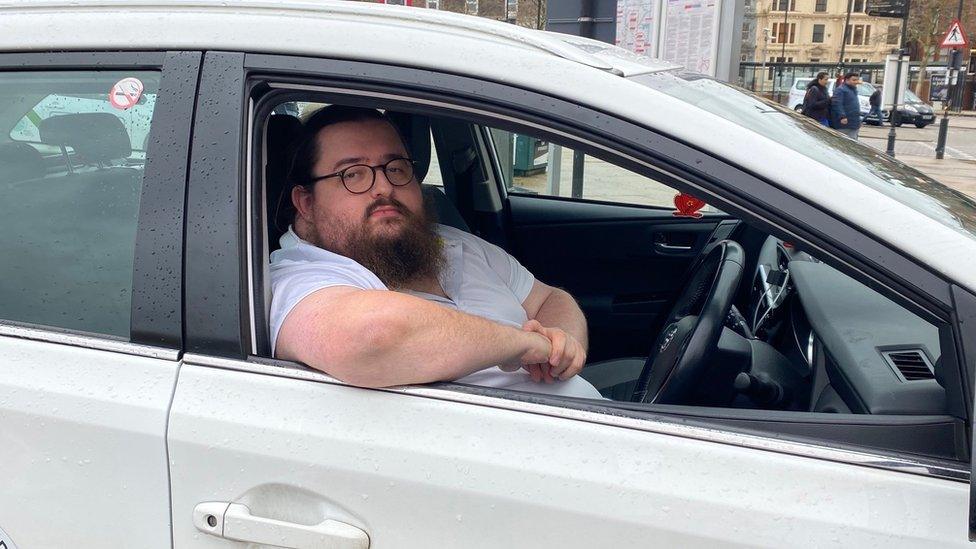
Minicab driver Henry Davis said January was usually a slow month for fares, but the strike had seen business fall off even more
Henry Davis 27, is a self-employed private hire driver for ABC taxis, working in Norwich and he agreed business was poor.
"Things have been dreadfully slow. That is partially due to the turn of the year, things slow down a lot," he said.
"With fewer trains running, of course there'll be more people working from home, less people needing to come home at the end of the day, or in the middle of the day, so that does cut off some trade especially those coming out of the station."
He said the flow of fares throughout the day would normally be "consistent" but "there's been a lot of sitting around today".
He also started work at 09:00 and lunchtime he had had two fares so far, earning £15.
"On a normal day if things were thriving in the city you'd be taking about £15-£20 an hour," he said.

'The strikes have had a big impact'
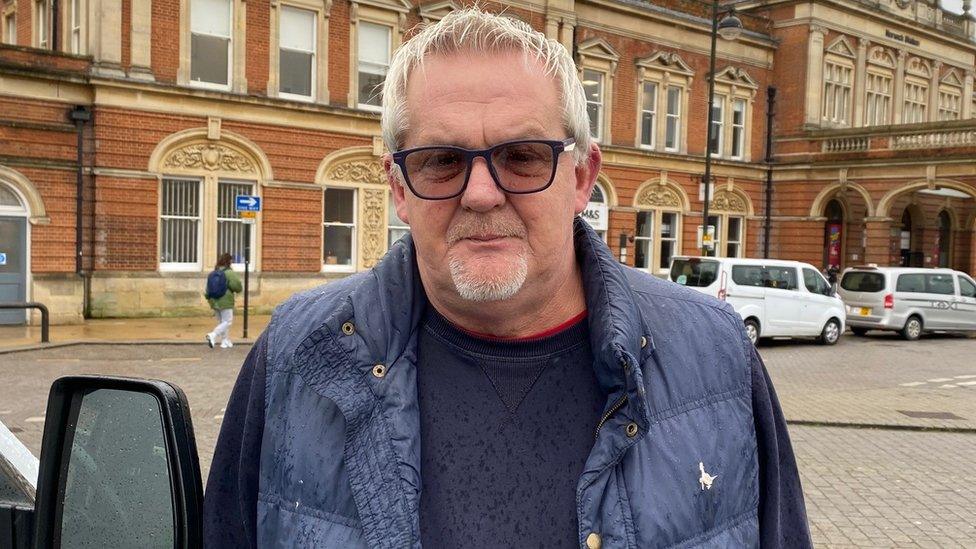
Paddy Keenaghan, who had lost out in takings due to the strike, said he did not support the railway workers' industrial action
Hackney cab driver Paddy Keenaghan, 61, started working at noon and said he would be "lucky to do two or three jobs" by 17:00.
He does not take bookings, but instead works off the streets.
"Obviously if there's nobody coming off the trains - we don't have anybody to pick up," Mr Keenaghan said.
He said the pandemic had hit the industry hard and was concerned about the impact of the rail strike on drivers.
"We're losing drivers who are leaving the trade because they have no money coming into the trade," he says.
"They have to work elsewhere to feed their families; the strikes have had a big impact."
He says before Covid, some 40 to 50 black cabs would be queuing up around the station to pick up fares, but "today you've got five or six".
"Everybody's losing out. [For instance], the county council is losing out - a lot of the drivers who drive Hackneys do school work," said Mr Keennaghan.
"So now the council are short of drivers to take special needs children to schools, so that's not just impacting on us, it's impacting on everything."

Bookings 'expected to increase'
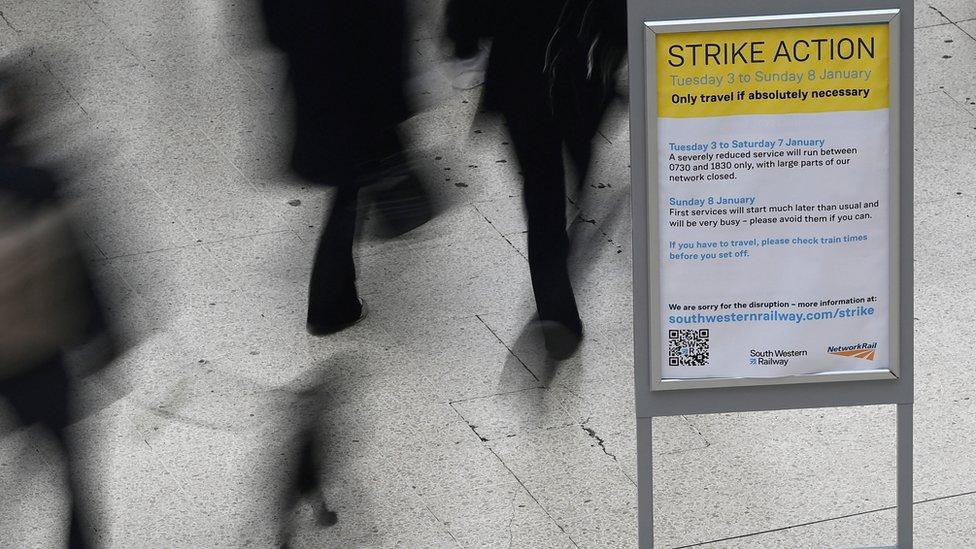
Travellers walk past an information board at Waterloo railway station in London, as rail workers continue a strike over pay and terms
ABC Taxis is Norfolk's largest taxi firm. It has some 360 "driver partners" on its books.
Chris Harvey, marketing and driver manager for ABC said while some fares had been lost due to the rail strike, the firm had taken more bookings for longer distance journeys to airports and London, as well as local journeys, as "people try to circumnavigate the strike".
"Having now spoken to our booking centre, it appears we have had a small increase in some localised bookings from stations such as Great Yarmouth and Diss, etc.," he said.
"With today being the first day back and some businesses still closed we haven't yet seen a large increase in bookings, however, expect this to increase as the week goes on."
The RMT members 48-hour strike is part of a long-running dispute over pay and conditions at Network Rail and 14 train operating companies.
Train drivers in the Aslef union at 15 rail companies are due to strike on Thursday, again in a dispute over pay.

Find BBC News: East of England on Facebook, external, Instagram, external and Twitter, external. If you have a story suggestion email eastofenglandnews@bbc.co.uk, external
Related topics
- Published3 January 2023
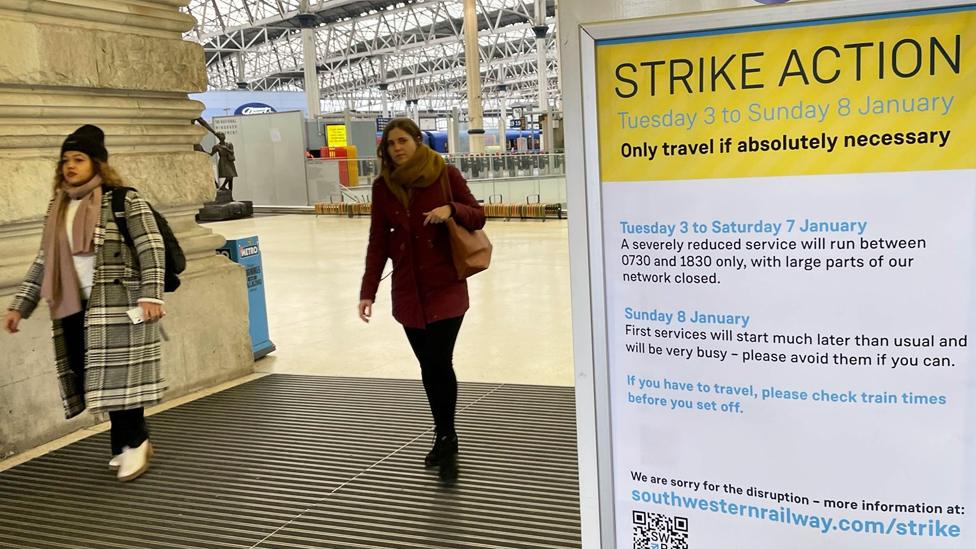
- Published29 December 2022
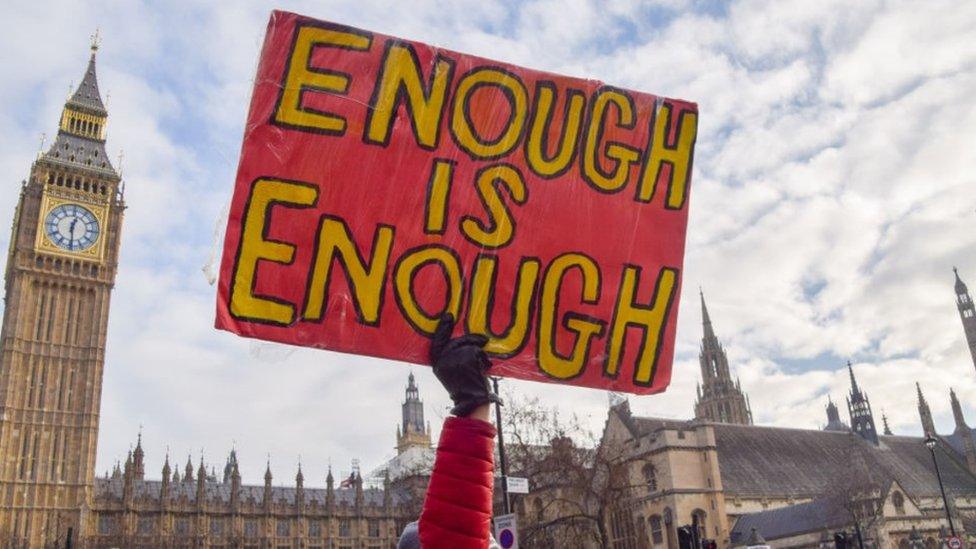
- Published18 August 2022
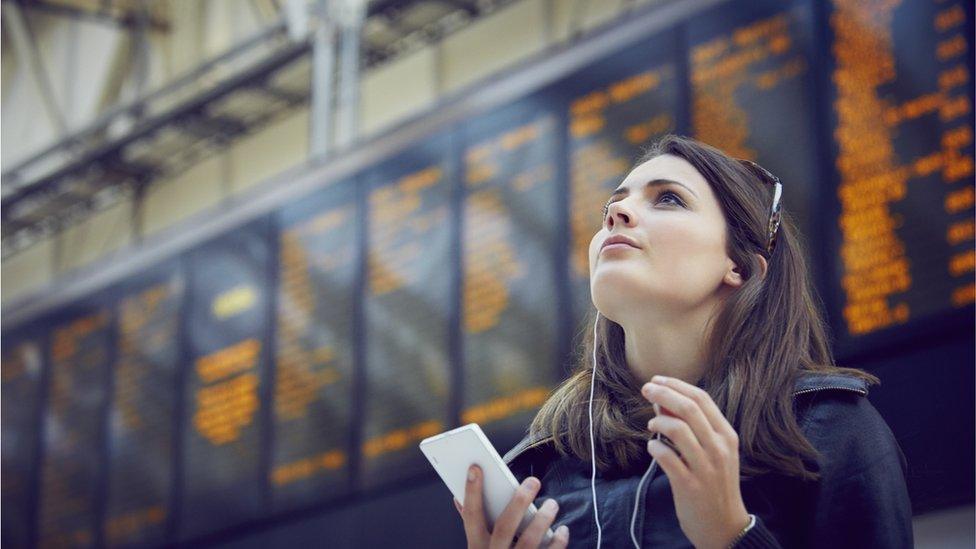
- Published29 June 2022
